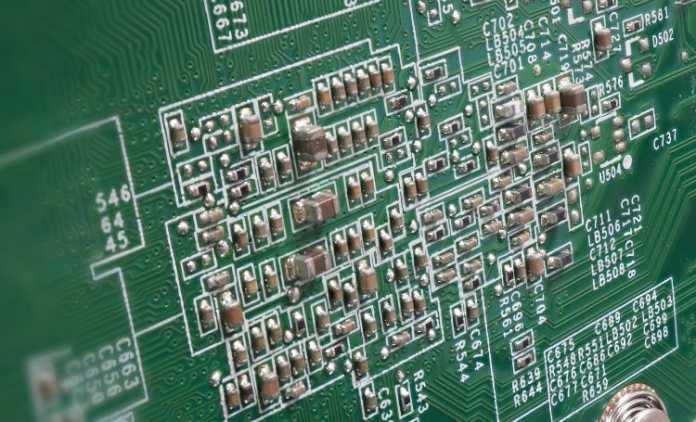Semiconductor manufacturing is at the heart of the modern digital age, powering everything from smartphones to self-driving cars. This dynamic industry is constantly evolving, driven by the relentless demand for faster, smaller, and more powerful chips. Advanced technology is playing a pivotal role in reshaping semiconductor manufacturing, ushering in a new era of innovation and efficiency. Read on to discover the key technological advancements that are revolutionizing semiconductor production.
Cutting-Edge Lithography Techniques
Lithography is indeed the backbone of semiconductor manufacturing, defining how small and intricate chip components can be. Advanced techniques, such as extreme ultraviolet (EUV) lithography, have enabled chipmakers to produce smaller transistors with unprecedented precision.
This breakthrough has not only resulted in more powerful and energy-efficient chips but has also ushered in a wave of groundbreaking innovations. These innovations span across various sectors, including artificial intelligence, where smaller and faster chips are driving the development of sophisticated AI algorithms. Additionally, the rollout of 5G networks has been accelerated, offering unprecedented data speeds and connectivity, all made possible by the remarkable advancements in lithography. Looking beyond these immediate applications, the potential of EUV lithography extends even further, promising to reshape industries people have yet to fully explore.
Vacuum Booster Pump: A Game-Changer in Cleanroom Environments
Cleanrooms are crucial in semiconductor manufacturing to prevent contamination. The introduction of advanced vacuum booster pump technology has transformed cleanroom operations. These pumps efficiently remove particles and gases, maintaining ultra-clean environments required for chip production. This innovation has improved yield rates and reduced production downtime significantly.
The Rise of AI in Semiconductor Manufacturing
Artificial Intelligence (AI) is undeniably making substantial waves in the semiconductor industry. AI-driven systems are not merely transforming the way semiconductor manufacturing operates; they are revolutionizing it. These intelligent systems are enhancing quality control with unparalleled precision, ensuring that even the tiniest defects are identified and rectified, thereby bolstering product quality and reliability.
Moreover, AI is optimizing production processes to a level of efficiency previously unattainable. Through real-time data analysis and predictive algorithms, manufacturers can streamline their workflows, minimizing downtime, and optimizing resource allocation. This leads to a substantial reduction in production costs and quicker time-to-market for new semiconductor products.
One of the most significant advantages of AI in semiconductor manufacturing is its capacity to predict equipment maintenance needs accurately. Through continuous monitoring and predictive analytics, AI can forecast when a machine is likely to fail or require maintenance, allowing proactive interventions. This not only extends the lifespan of costly machinery but also prevents unexpected downtime, saving both time and resources.
The utilization of machine learning algorithms in semiconductor manufacturing goes beyond process optimization. It empowers manufacturers to extract valuable insights from the vast troves of data generated throughout the production cycle. These insights not only improve current operations but also inform future decision-making, leading to increased yields, reduced waste, and overall enhanced profitability.
Semiconductor Materials Innovation
Advancements in materials science have expanded the possibilities for semiconductor manufacturing. Silicon carbide (SiC) and gallium nitride (GaN) are emerging as alternatives to traditional silicon wafers. These materials offer higher performance and energy efficiency, making them ideal for applications in electric vehicles, renewable energy, and power electronics.
IoT and Smart Manufacturing
The Internet of Things (IoT) is not merely reshaping semiconductor manufacturing; it is fundamentally revolutionizing it. IoT serves as the connective tissue that binds machines and devices into a seamless network, creating a digital ecosystem within the manufacturing environment. In this interconnected world, smart manufacturing systems take center stage, harnessing the power of IoT to monitor and control production processes with unparalleled precision and efficiency.
This real-time connectivity enables proactive adjustments in response to changing conditions on the factory floor. For instance, if a machine shows signs of deviation from optimal performance, IoT sensors can instantly trigger maintenance requests, preventing potential breakdowns and costly downtime. Moreover, the ability to monitor production in real-time allows for the rapid identification and rectification of defects, ensuring that only high-quality products make it to the market.
Sustainability Initiatives in Semiconductor Manufacturing
As environmental concerns grow, semiconductor manufacturers are embracing sustainable practices. Efforts to reduce water and energy consumption, minimize waste, and develop eco-friendly packaging solutions are becoming standard. Sustainability not only benefits the environment but also enhances a company’s reputation and customer trust.
The semiconductor industry is in a state of perpetual transformation, driven by advanced technology. Cutting-edge lithography techniques, the integration of AI, and innovative materials are pushing the boundaries of what’s possible. The introduction of vacuum booster pumps has revolutionized cleanroom environments, ensuring higher chip yields. IoT and smart manufacturing are enhancing efficiency, while sustainability initiatives are paving the way for a greener future.
As the world embraces these technological advancements, semiconductor manufacturing will continue to evolve, shaping the world of electronics in unprecedented ways. This journey of innovation promises a future where smaller, faster, and more powerful semiconductor chips drive the progress of a digital world.



























